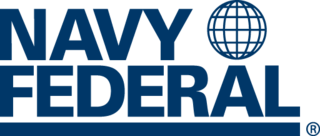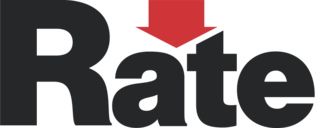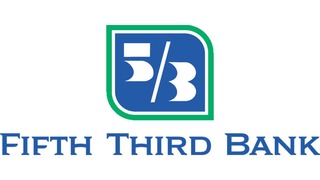8 Best Home Equity Loans of July 2025
* Sample rates and APRs are subject to change. All information provided here is accurate as of June 27, 2025.
One of the biggest perks of owning a home is the equity it allows you to build. When you sell, that equity can translate to cash in hand at closing. But you can borrow from that equity while still living in the home, too — using it to pay for home repairs, unexpected medical bills, or even to consolidate higher-interest debts, like credit cards.
Home equity loans and HELOCs (home equity lines of credit) are two tools you can use to turn your equity into cash. According to our research, these are the best home equity lenders currently on the market.
What to know about home equity loans
- Home equity loans turn your home equity into a lump sum of cash you can use however you’d like.
- There are also HELOCs, which work more like credit cards, allowing you to turn your home equity into a credit line you can withdraw from as needed.
- You can get home equity loans and HELOCs from big-name banks, online lenders, credit unions, financial technology companies, and online banks.
- Qualifying standards, loan amounts, property requirements, and other details are not standardized and vary by financial institution.
How we chose our top picks
Our editors and writers reviewed over 60 home equity products and lenders to ensure our list is as comprehensive as possible. We used publicly available data and interviews with lender representatives to confirm data accuracy. We then used factors such as interest rates, term options, maximum loan amounts, credit score requirements, and loan-to-value thresholds to score each lender on a one-to-five scale. What you see below are the top companies that emerged.
Read our full methodology to learn more.
Our Top Picks for Best Home Equity Lenders of July 2025
- PNC Bank: Best Overall
- Figure: Best HELOC
- Discover: Best Home Equity Loan
- Connexus Credit Union: Best No-Appraisal Option
- Navy Federal: Best for Military Borrowers
- M&T Bank: Best for Low Rates
- Rate: Best for Investors
- Fifth Third: Best Flexible Rate Lock
- Highest overall score in our review process
- Up to 90% LTV
- Lowest credit score minimum we found
- High loan amounts
- Low intro rate, fixed and variable rate options
- No home equity loans (only HELOCs)
- In-person appraisal is required
- Not available in all 50 states
- Product Types
- HELOC
- Maximum loan amount
- $1 million
- Maximum LTV
- 80% to 89.99%, depending on several factors
- Terms
- 10-year draw periods with 30-year repayment periods; 5 to 30 years for fixed-rate options; 5-year interest-only options
- Interest rates
- Fixed and variable; 0.25% intro APR for first six months, rates start at 7.99% APR after that
- Credit score minimum
- Over 600, though credit requirements can vary by borrower
- Properties allowed
- Single-family homes, multi-family properties, condos, and mobile homes
Why we chose it: PNC Bank came out on top with a whopping 4.85 out of 5 score, making it the best-rated home equity product out of all 60+ we analyzed. The bank offers large loan amounts, low credit score requirements (the lowest we found), and a variety of rate and term options from which you can choose. Its introductory 0.25% interest rate is unbeatable, too.
- Low fixed rates
- Several term options
- Relatively low credit score requirements
- Fast funding time
- Typically, no in-person appraisal is required
- Not available in all 50 states
- Relatively low maximum loan amount
- LTV could be higher
- Product Types
- HELOC
- Maximum loan amount
- $400,000
- Maximum LTV
- 85%
- Terms
- 5, 10, 15, and 30 years
- Interest rates
- Fixed rates starting at 6.95% APR
- Credit score minimum
- 640
- Properties allowed
- Single-family homes, townhouses, planned urban developments (PUDs), most condos, and duplexes. Both primary and secondary residences can qualify.
Why we chose it: Figure, an online financial technology company, has our top HELOC. The line of credit comes with a low fixed interest rate and four term options, ranging from five to 30 years. Its credit score minimum is relatively low at 640, and you typically won’t need an in-person appraisal (the lender usually utilizes Automated Valuation Models, or AVMs, instead). And the best part? Many borrowers get their cash within just five days.
- Low interest rates
- Several term options
- High LTV maximum
- Typically, no in-person appraisal is required
- No origination fees
- Not available in all 50 states
- High credit score minimum
- Product Types
- Home equity loans
- Maximum loan amount
- $300,000
- Maximum LTV
- 90%
- Terms
- See website for details
- Interest rates
- Fixed
- Credit score minimum
- 680
- Properties allowed
- Single-family primary residences
Why we chose it: If you’re eyeing a home equity loan, consider Discover. The lender offers loans up to $300,000 — with a maximum 90% LTV and four term options — in all states but Maryland and Iowa. Rates start at 7.96% APR for second liens and borrowers typically won’t need an in-person appraisal, which reduces the cost of borrowing. You won't pay any closing costs or application or origination fees, either.
- No in-person appraisal required
- Low interest rates and credit score minimum
- Long draw period on HELOCs
- High LTV maximum
- No 30-year home equity loan options
- Not available in all 50 states
- Requires credit union membership
- Product Types
- Home equity loans and HELOCs
- Maximum loan amount
- Varies by state and borrower
- Maximum LTV
- 90%
- Terms
- 5, 10, and 15 years on home equity loans; 15-year draw and 15-year repayment on HELOCs
- Interest rates
- 5.99% intro APR until April 1, 2026, and 6.49% APR until Oct. 1, 2026 on HELOCs; then starting at 8.17% APR for fixed-rate HELOCs and 8.67% APR for interest-only HELOCs; fixed rates starting at 7.31% APR for home equity loans
- Credit score minimum
- 640
- Properties allowed
- Primary residences, second homes, duplexes, townhomes, and two- to four-unit condos
Why we chose it: Connexus Credit Union is the place to look if you’re hoping to avoid the hassle and headache of an appraisal. You can get both home equity loans and HELOCs from the lender, and its low credit score minimum, 90% LTV max, and lengthy 15-year draw period on HELOCs are notable, too. You can even borrow against your second home if you have one — something not all home equity lenders allow.
- Offers both home equity loans and HELOCs
- Long draw period on HELOCs
- High maximum LTV
- Several term options
- No closing costs
- Only available to military members and certain government employees
- Credit score requirement could be lower
- No 30-year home equity loan options
- Product Types
- Home equity loans and HELOCs
- Maximum loan amount
- $500,000
- Maximum LTV
- 95% to 100%, depending on the product
- Terms
- 5, 10, 15, and 20 years for home equity loans; 20-year draw and 20-year repayment for HELOCs
- Interest rates
- Fixed, starting at 7.34% APR on home equity loans; variable, starting at 7.75% APR on HELOCs
- Credit score minimum
- 650
- Properties allowed
- Primary residences and second homes, as long as they’re within 50 miles of your primary residence
Why we chose it: Navy Federal’s home equity loans have quite a few standout features that borrowers might find valuable. For those wanting extended access to cash, its HELOC is a good option, offering a lengthy 20-year draw period — longer than any other product we analyzed. If you’re hoping to tap a good amount of equity, you can look to its home equity loan instead, which allows up to a 100% LTV with no closing costs.
- Low interest rates
- Both variable and fixed rate options
- Loan amounts up to $1 million
- No closing costs
- Not available in all 50 states
- High credit score minimum
- Product Types
- HELOC
- Maximum loan amount
- $1 million
- Maximum LTV
- 85.99% for primary residences; 70.99% for vacation homes and manufactured homes
- Terms
- 10-year draw and 20-year repayment periods
- Interest rates
- Intro rate of 5.99% for six months; variable rating starting at 6.94% after; three fixed-rate lock options available
- Credit score minimum
- 680
- Properties allowed
- Primary residences, vacation homes, condos, townhomes, one- to four-unit properties, and manufactured homes
Why we chose it: M&T Bank’s intro 5.99% intro rate can save you significantly on interest in the first six months of your loan — especially when considering how high the lender’s loan amounts go (up to $1 million). Borrowers also get three fixed-rate lock options over the course of their loan and can choose interest-only payments during the draw period. One more notable detail: There are no application fees, closing costs, or annual fees.
- Investment properties and rentals allowed
- No closing costs
- Low fixed rates
- Low credit score requirement
- Short draw period
- Fairly low maximum loan amount
- Not available in all 50 states
- Product Types
- HELOC
- Maximum loan amount
- $400,000
- Maximum LTV
- 85%
- Terms
- 2 to 5-year draw and 5, 10, 15, or 30-year repayment period
- Interest rates
- Fixed, starting at 6.60% APR
- Credit score minimum
- 640
- Properties allowed
- Primary residences, second homes, investment properties, single-family rentals, condos, and townhomes
Why we chose it: For those looking to cash in on an investment property or rental home, look to Rate. The online lender, formerly Guaranteed Rate, allows you to borrow against primary residences, second homes, investment properties, single-family rentals, and more, and interest rates are fixed, giving you consistency for the entire five, 10, 15 or 30-year term you chose. Most loans require no in-person appraisal.
- Rate lock option lets you choose the number and amount of monthly payments
- Low introductory interest rate
- High LTV value
- No closing costs
- Only available in 11 states
- $95 fee to lock in rate
- Product types
- Home equity loans and HELOCs
- Maximum loan amount
- $500,000
- Maximum LTV
- 90%
- Interest rates
- Rates vary for home equity loans; rates starting at 6.97% APR for HELOCs; fixed rate lock periods available for HELOCs
- Credit score minimum
- Varies
- Properties allowed
- Owner-occupied residences, non-owner-occupied properties, and multi-unit properties
Why we chose it: Fifth Third's flexible rate lock option allows you to secure a fixed interest rate on the lender's Equity Flexline HELOC, giving you the option of locking in a favorable rate on part or all the available line of credit. You choose how long you want to lock the rate for and how much you want to pay, which can help lower your monthly costs if you need some wiggle room.
Other companies we considered
TD Bank
TD Bank was a top choice for best overall home equity lender, boasting both a HELOC and home equity loan that were highly rated under our scoring system. The lender offers a variety of term and rate options, and its loan amounts go up to $6 million.
Why we didn't choose it: The only thing holding it back was its limited geographic footprint, which prohibits many borrowers from reaping these benefits.
Achieve
Achieve is a popular online lender we also considered. Its fixed-rate HELOC is notable, offered in 10, 15, 20 and 30-year terms. The lender also has one of the lowest credit score requirements — 600 — of the companies we considered, making it a good choice for borrowers who have less than perfect credit.
Why we didn't choose it: The short, five-year draw period could be an issue for some borrowers and its maximum loan amounts are on the lower end, too, especially if you aim to use the cash for debt consolidation — those are limited to $150,000.
Rocket Mortgage
Rocket Mortgage is often ranked as a top mortgage lender thanks to its easy online application process, multiple loan options and high customer satisfaction ratings. They provide loans in all states and can be a good choice for someone looking for an online lender.
Why we didn't chose it: Rocket's home equity products have high credit score requirements (you need a 740 to qualify for a 90% LTV) compared to other lenders we considered, and the company offers no advertised rates with which to gauge your costs. In-person appraisals are also required, which adds to the cost of tapping into your equity.
SoFi
We also considered online bank SoFi for our list. The lender’s home equity loan comes in several term options and offers loans of up to $350,000 for home improvements or debt consolidation.
Why we didn't choose it: The minimum credit score of 680 is a little higher than some other options we considered and its interest rates are a bit higher than others we analyzed, putting it slightly behind other home equity loans on this list.
What you need to know about home equity loans
If you’ve never tapped your home equity before, it can be a time-consuming process. Here’s how these loans work and how you can borrow from your equity successfully.
What is a home equity loan?
A home equity loan is a type of second mortgage — meaning it’s a loan you take out in addition to your main mortgage. It has its own terms, interest rate, and monthly payments. And, like your first mortgage, it uses your home as collateral, so if you fail to make payments, the lender can foreclose on your home.
HELOCs are a type of second mortgage, too. However, these two loans work very differently, even though they tap the same equity. A home equity loan works just like a regular loan you’d use to buy almost anything – you get a lump sum at closing to use for whatever expenses you want to cover.
With a HELOC, however, you’re actually turning your equity into something more like a credit card. Instead of getting a lump sum payment that you have to pay back at a set pace for a set amount of time, you instead get potential. You can borrow up to the amount of the HELOC, just like with a credit card, and just like with a credit card, you only pay for what you borrow.
How does a home equity loan work?
Home equity loans let you borrow from your home equity — or the portion of your home that you actually own. Typically, lenders will let you borrow up to 80 to 90% of your home’s value, minus the balance on your existing mortgage loan.
So, if your home is worth $300,000 and you have a mortgage balance of $150,000, you can expect to be able to tap between $90,000 and $120,000, depending on your lender’s limits.
Once you get your cash, home equity loans work just like your main mortgage. You’ll pay it off with set payments every month across a long period of time, usually between five and 30 years.
HELOCs have a slightly different repayment strategy. With these, you’ll usually make interest-only payments for the first few years of the loan, then full principal-and-interest payments once your credit line’s draw period ends.
Differences between HELOCs and home equity loans
HELOCs are much less standardized than home equity loans, so there are a myriad of payment options that are possible. This is why it’s so important to understand exactly what the terms of your HELOC are before you sign on the dotted line.
In general, a HELOC works like this: your bank gives you a maximum amount that you’re allowed to borrow from your home’s equity, and treats it much like a credit card. You sometimes will even get a debit card that you can use in conjunction with your HELOC. You have a set period in which you can borrow money from your credit line, usually five to 15 years. You may be permitted to pay just the interest during this period, depending on your loan.
Once this draw period is over, the amount of your loan is set. So, if you were given a $100,000 HELOC, but you only used $75,000 during your draw period, your final loan would be for $75,000. At this point, your loan payment is calculated so that the principal will be paid in full before the end of your loan period. You’re then expected to pay a full interest and principal payment for the rest of the loan’s life.
How to choose a home equity lender
Choosing the right home equity lender is critical to achieving your goals. Not only do qualifying requirements vary by lender, but so do loan amounts, product types, and more.
When choosing where to get your home equity loan, make sure to consider the following:
- Eligibility requirements, including credit score minimums and appraisal requirements.
- Property types allowed, especially if you’re considering borrowing against a second home, vacation property, or investment home (these are harder to find lenders for).
- Loan amounts and loan-to-value ratios, as these determine how much you’ll be able to borrow.
- Fees, rates, and repayment term options available, since these factors will determine the overall cost of borrowing and the total interest you'll pay.
You should consider customer reviews and ratings, too, as well as any regulatory actions or lawsuits against the company. You can find these by searching for the lender in the Nationwide Mortgage Licensing System (NMLS) database.
Pros and cons of home equity loans
Pros
Cons
Allows you to turn your home equity into cash
Adds a second mortgage payment to your household
Funds can be used for any purpose
Puts your home at risk of foreclosure if you don’t make your payments
Interest may be tax-deductible if you use the money to improve your house
Usually come with upfront closing costs and fees
Typically have lower rates than other types of consumer borrowing products
Could put you upside down on your house if it loses value
Alternatives to home equity loans
Home equity loans and HELOCs aren’t the only way for homeowners to borrow cash.
If you’re looking for other options, you can also explore:
- A cash-out refinance: This loan replaces your current mortgage with a new one with a larger balance. You then get the difference between the two balances back as a lump sum payment at closing. Fair warning, though: Cash-out refinancing replaces every aspect of your existing loan, including its rate and payment. This might be an ill-advised move if rates have increased since you took out your current mortgage.
- A personal loan or credit card: If you want to avoid using your home equity altogether, a personal loan or credit card could be an option. Just note that these typically come with much higher rates than home equity products (and mortgages in general), so they might not be smart if you need a large amount or can’t pay off the balance quickly.
- A reverse mortgage: If you’re a senior citizen, a reverse mortgage can offer a handy way to tap your home equity. With these, the lender pays you out of your equity, either monthly, via a lump sum or as a credit line. You’ll make no monthly payments and will only repay the balance when you permanently move out or sell the house. If you pass away and your heirs wish to keep the house, they will need to make arrangements to pay the reverse mortgage back. The government-backed version of these is only available to homeowners 62 and up, though some lenders offer proprietary options for homeowners aged 55 or more.
If you’re not sure of the best way to get the cash you need, talk to a mortgage professional or financial advisor. They’ll help you consider all your options.
Latest home equity news
The housing market has been sluggish over the past two years due to high mortgage rates and rising home prices. Now, the U.S. economy is showing signs of a slowdown that has raised concerns among Americans about rising costs. With increasing debt levels, homeowners are well-positioned to weather a financial storm thanks to record-high levels of home equity. Homeowners today have accumulated 43 times more wealth than renters.
According to real estate analytics firm Intercontinental Exchange, homeowners who still hold a mortgage have access to an aggregate of $11.5 trillion in usable home equity and still retain at least 20% ownership of their property. Each mortgage holder could access up to $212,000 on average, with those who own their homes outright having a much higher equity gain.
"People are continuing to see their house as the most effective form of financing, given there's so much home equity," says Michael Tannenbaum, CEO of home equity lender Figure.
While home equity loans are one way to use that financing, Tannenbaum, points out that home equity lines of credit are quickly becoming the preferred method of paying off higher interest debt such as credit card balances and personal loans — a trend he sees as continuing throughout the year.
Home equity loan FAQs
What are the negatives of a home equity loan?
What is the monthly payment on a $50,000 home equity loan?
What’s the catch on home equity loans?
Is it a good idea to take equity out of your house?
Methodology
We evaluated dozens of banks, credit unions and online home equity lenders nationwide. We gathered data on product terms, qualifying requirements, interest rates, availability, and other perks to zero in on the best ones. We scored lenders on a one-to-five scale based on five categories: interest rates (30%), loan terms (20%), credit score minimums (20%), loan-to-value ratio (15%) and maximum loan amounts (15%).
We considered companies that offered competitive interest rates since they are one of the primary factors influencing the cost of financing a home purchase.
- Companies that provided longer payback and, in the case of HELOCs, draw periods were given a higher score.
- We prioritized companies with lower credit score requirements because they make the products available to a broader group of borrowers.
- Higher scores were given to companies with higher loan-to-value ratios, which helps increase the pool of borrowers able to take advantage of the products offered.
- We gave companies that offered higher loan amounts better scores compared to their competitors.
Summary of our top picks for best home equity loans of July 2025
- PNC Bank: Best Overall
- Figure: Best HELOC
- Discover: Best Home Equity Loan
- Connexus Credit Union: Best No-Appraisal Option
- Navy Federal: Best for Military Borrowers
- M&T Bank: Best for Low Rates
- Rate: Best for Investors
- Fifth Third: Best Flexible Rate Lock














